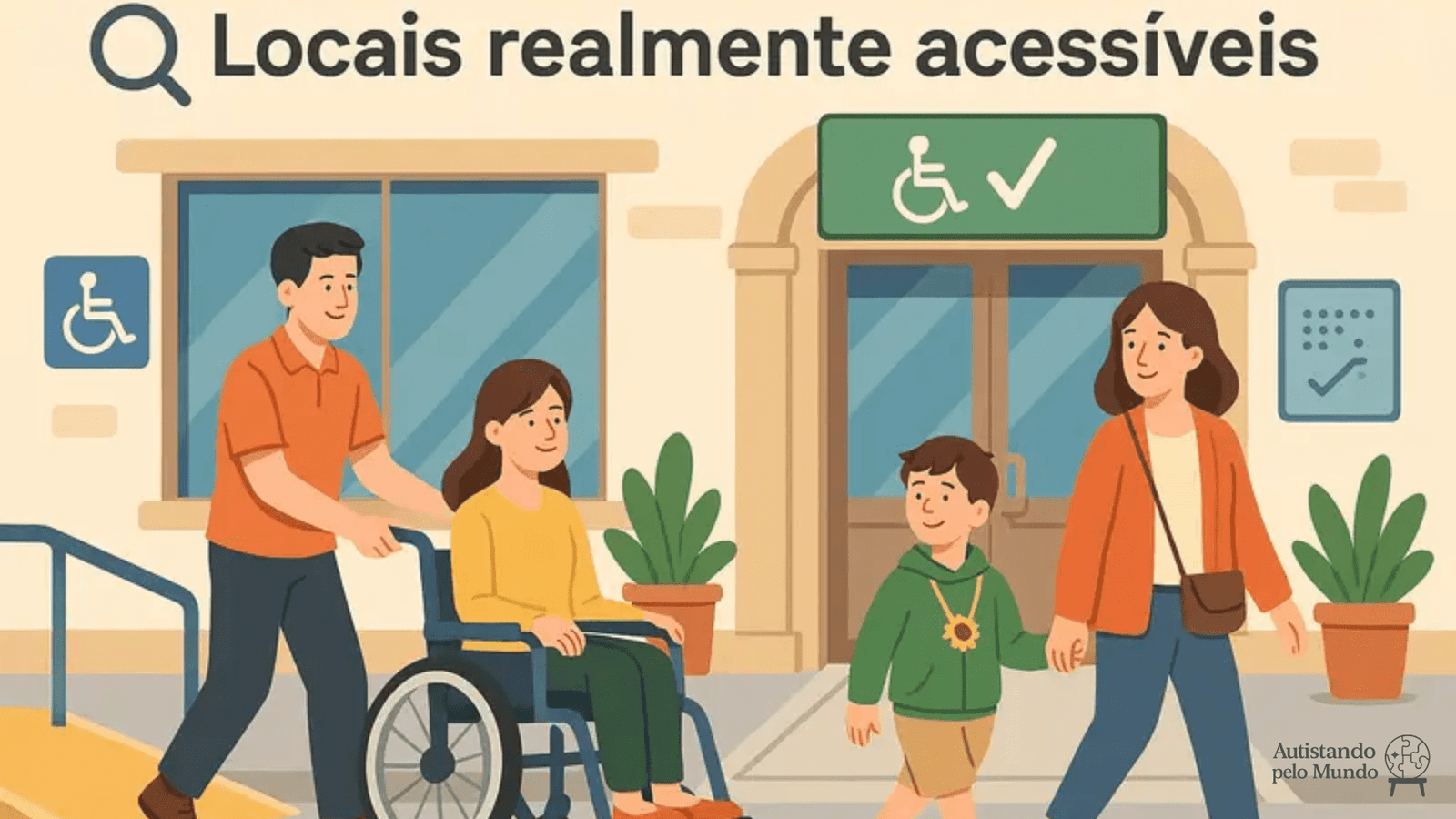🔍 How to identify if a place is truly accessible before visiting
Planning a trip or outing with people with disabilities or autism involves paying close attention to detail. We often find places that claim to be accessible, but in practice, don't offer the necessary comfort, safety, and autonomy. Therefore, it's essential to learn how to identify whether a location is accessible. really affordable before leaving home.
In this guide, we've compiled tips and questions to help you check the accessibility of hotels, restaurants, tourist attractions, and public spaces. This way, you can avoid unpleasant surprises and ensure more peaceful and inclusive experiences for the whole family.
📞 1. Contact the establishment directly
The first step is to avoid relying solely on information from websites or social media. Call or text and ask about specific points. Some examples of important questions:
- Does the location have an access ramp or step-free entrance?
- Is there an adapted bathroom with grab bars?
- Are there tactile signs or tactile flooring for people with visual impairments?
- Is the environment quiet or very noisy (important for autistic people)?
- Do you have accessible menus, such as Braille or digital menus?
- Are there reserved parking spaces near the entrance?
These questions help you get a realistic view of the space and understand whether the team is prepared to serve you with empathy and respect.
📷 2. Ask for photos or videos
Official photos don't always show all the details. Ask for pictures of the main entrance, the accessible restroom, and the path between common areas. When possible, look for videos of real guests showing what it's like to get there.
Social media platforms like Instagram and TikTok can be great tools for viewing authentic footage and ensuring greater security before your visit.
📝 3. Check accessibility-focused reviews
Sites like Google Maps, TripAdvisor and specific inclusive tourism platforms often have reviews about accessibility. Carefully read other visitors' reports and see if there have been any recurring issues.
Choose places that are well-reviewed by families with similar needs to yours, as this increases the chance of a good experience.
🔖 4. Consult seals and certifications
Some places have accessibility seals issued by official bodies or specialized NGOs. In Brazil, for example, the Accessibility Seal may indicate that the space has undergone a technical evaluation. Even so, it's important to confirm that the structure meets your specific needs.
👀 5. Notice details that make a difference
In addition to the more well-known items, there are aspects that can greatly impact the comfort of people with disabilities or autism, such as:
- Adequate lighting and absence of obstacles on the ground
- Sufficient space for wheelchairs or strollers to move around
- Height-compatible table options
- Possibility to book less busy times
All of these details contribute to a more peaceful and inclusive experience.
✨ Conclusion
Researching and asking questions is not an exaggeration: it is a way of exercising your right to accessibility and ensure your family can enjoy every moment with greater safety and comfort. Whenever possible, share your experience in online reviews. This way, you help others feel more confident in choosing truly inclusive places.
If you want to see more practical tips on accessibility and inclusion, keep exploring our site. Here, we believe everyone has the right to live incredible experiences!
For official information, please also consult the Federal Government Accessibility Handbook.

📣 Share your inclusion experience!
Have you had a positive accessibility experience at a park, hotel, restaurant, or other location? Your story could help other families plan more inclusive trips.
Send your report and it may appear here on the website, in our section Reviews or General Tips!

Don't miss any tips!
Sign up and receive our inclusive tourism experiences directly to your email.
Want to make tourism more inclusive?
We are open to partnerships with accessible spaces, inclusive inns and projects that value diversity.
Get in touch and let's talk!